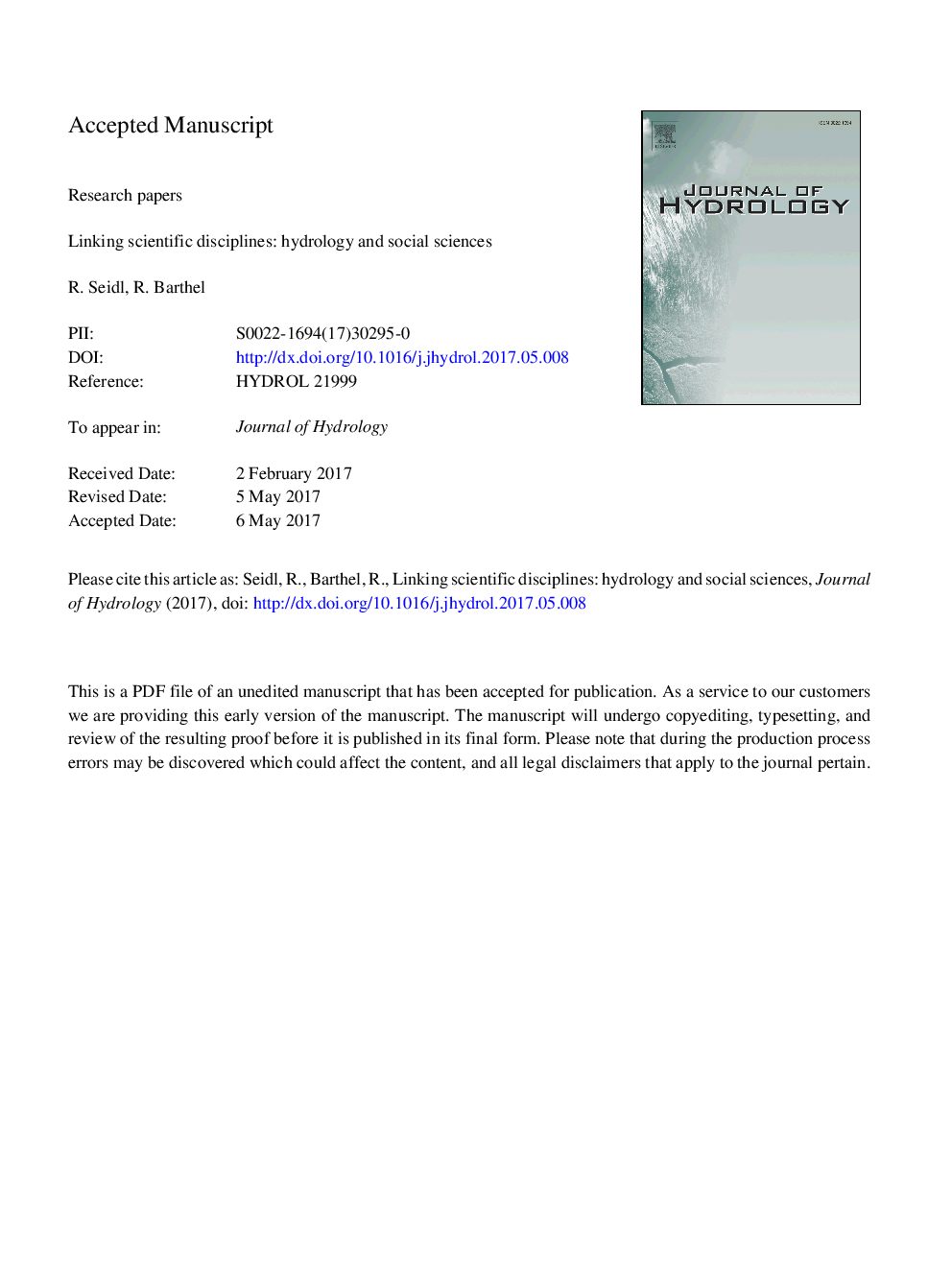ترجمه فارسی عنوان مقاله
پیوند رشته های علمی: هیدرولوژی و علوم اجتماعی
عنوان انگلیسی
Linking scientific disciplines: Hydrology and social sciences
| کد مقاله | سال انتشار | تعداد صفحات مقاله انگلیسی |
|---|---|---|
| 88219 | 2017 | 42 صفحه PDF |
منبع

Publisher : Elsevier - Science Direct (الزویر - ساینس دایرکت)
Journal : Journal of Hydrology, Volume 550, July 2017, Pages 441-452
ترجمه کلمات کلیدی
میان رشته ای، هیدرولوژی، علوم اجتماعی، نظر سنجی، مرور، اجتماعی هیدرولوژی،
کلمات کلیدی انگلیسی
Interdisciplinarity; Hydrology; Social sciences; Survey; Review; Socio-hydrology;

